This summer has been marked by heat waves and record droughts across the planet. Africans are suffering from hunger and water shortages, more than 1 million hectares of land in the USA are on fire, Chinese authorities are saving people from the heat in bomb shelters, and in Europe crops are dying, farms are closing, navigable rivers are drying up, and hydro and nuclear power stations are shutting down. All this threatens to become the new normal — the world is on the brink of a food catastrophe. To save the situation, the UN is calling for Russia to be taken out of the trade sanctions.
Catastrophic consequences of Europe’s hot summer
This year’s drought in Europe was the worst in 500 years. An unprecedentedly dry winter and spring were replaced by an abnormal summer heatwave that affected almost the entire continent.
The Iberian Peninsula is one of the hardest-hit regions, with more than a thousand years of severe drought. Spain and Portugal started to get hot as early as May, with temperatures reaching 40.3°C by late spring, 16 degrees above the climate norm. The July temperature rose to 46.3°C in Portugal and to 42°C in Spain. The forests of both countries were engulfed in flames and the cities were plagued by smoke.
An unprecedented drought has put Italy’s food security at risk. One of the country’s main rivers, Poe, has dropped to a tenth of its normal level and water has receded 2 metres from its banks. As a result, the country has already lost 30% and risks losing up to 60% of its rice harvest. Yet Italy provides half of EU consumption of the crop.
Overall, 30% of the country’s food is produced on farms in the Poe basin — all of which are now on the brink of closure. In particular, the famous Parmesan cheese is produced there, which the whole world is now at risk of being deprived of. In total, the drought is costing Italian farmers €3 billion in losses — a record loss in the last 70 years.
In northern Europe, the situation is slightly better — July in England was the driest in 90 years, and air temperatures exceeded 40°C for the first time in the history of observations. The heat strained railway tracks, melted airport runways, and wildfires engulfed the whole country — 745 fires were recorded in mid-August — three times more than in the whole of last year (247). Amid the drought, the UK authorities have restricted water consumption: it is forbidden to water gardens, to fill swimming pools and fountains, and to wash cars.
Similar measures have been introduced by the Dutch and French authorities because of water shortages. In the latter, the heatwave has been disrupting the operation of nuclear power plants since May. The reservoirs used to cool the reactors have overheated and shallowed — as a result, the country’s nuclear power plants are only operating at 43 percent of their capacity. This is a serious blow to the country’s energy mix, where 70% of the country’s electricity comes from nuclear power plants.
In Norway, reservoir levels have dropped critically — the Norwegian government is preparing to limit electricity exports, as 90% of electricity there is generated by hydroelectric power plants.
Germany’s drought has caused the Rhine River, one of the continent’s main waterways, to shrink catastrophically, supplying Central Europe’s largest cities. In particular, it carries most of the coal, oil and fertilisers in the region. As the water level on many parts of the river is now simply too low for ferries and barges to pass, navigation has been paralysed. As a result, Central European factories and power stations are disrupted — shipping is generally not able to be quickly diverted to rail routes.
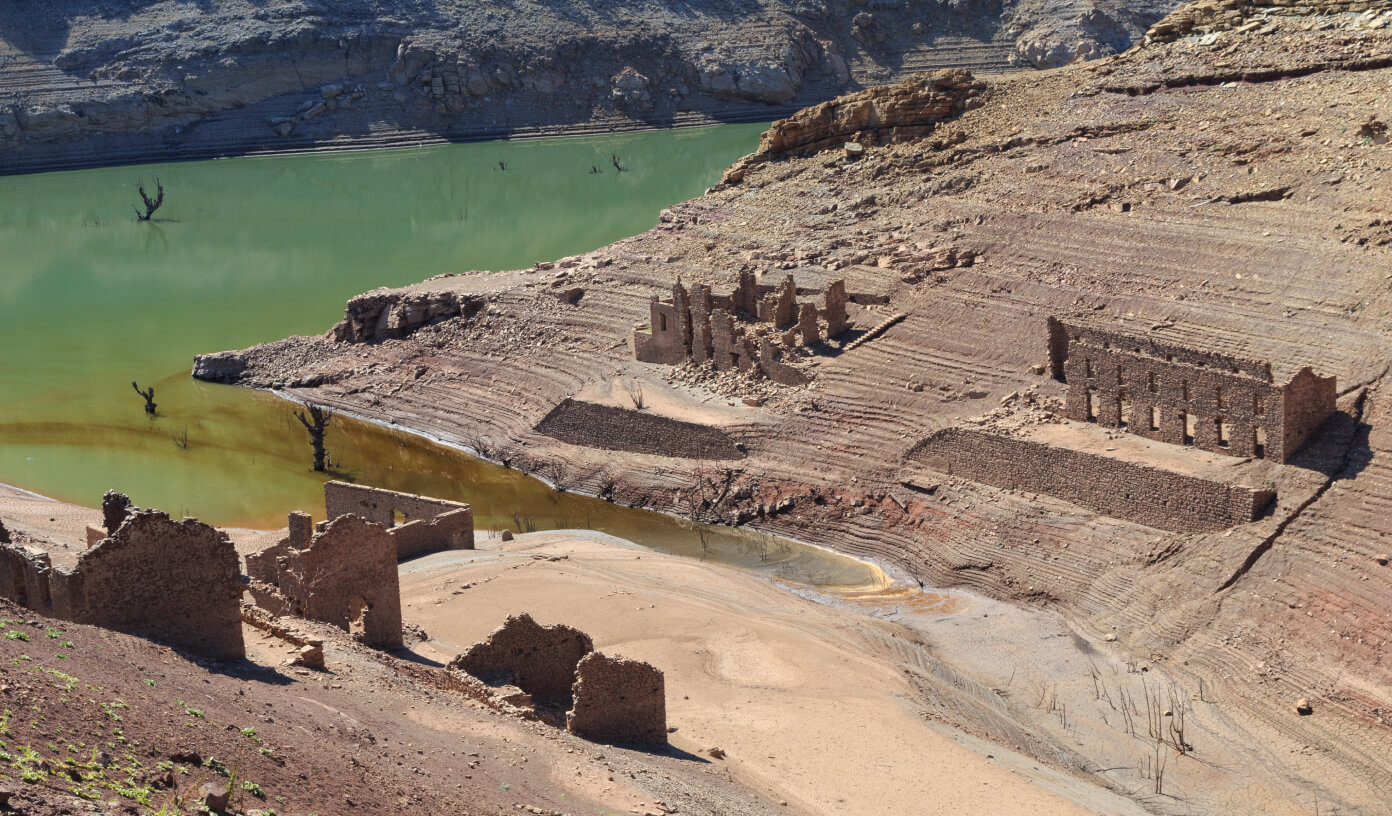 Photo by: Jef Wodniack / iStock
Photo by: Jef Wodniack / iStock
Heat and drought in the rest of the world
India was one of the first countries to experience abnormal heat waves in 2022. March was the hottest March on record, with temperatures as high as 40°C. In May the temperature rose to 50°C. There was a drought in the main grain-growing areas and India lost most of its crops. To avoid famine in the country, Indian authorities took extreme measures: they had to ban exports of wheat.
An abnormal heatwave arrived in the US in June. More than 100 million Americans were affected. Temperatures rose particularly sharply in St Louis, Memphis and Minneapolis, to 38°C, while the normal temperature was about 24°C. Large wildfires engulfed the country, destroying 1.2 million hectares of land. Texas, Arizona, Utah and Alaska had the largest number of fires. The southern states are in drought — California has had its largest drought in 1,200 years. Most reservoir levels were halved, authorities restricted water supplies to people and agricultural enterprises, and many fish in local lakes and rivers, particularly salmon, were at risk of dying due to overheating.
China has been hit by a heatwave since July, with temperatures soaring above 44°C in many parts of the country. Summer heat waves are not uncommon in the Middle Kingdom, but this year’s heat wave was the longest and most intense on record. Authorities in major cities have urged citizens not to leave air-conditioned premises unnecessarily. For those without air conditioning, a number of city halls have opened underground bomb shelters equipped with air conditioning and wireless internet.
This year’s heatwaves have worsened the already dire situation in several regions of Africa, where prolonged droughts have been observed for several years in a row. In East Africa, 26 million people suffer from hunger: the worst drought in 30 years is killing livestock and crops in Ethiopia, Kenya and Somalia. Madagascar is facing its first famine in 40 years, with 30,000 villagers forced to eat cacti and insects.
For the seventh year in a row, the drought in South Africa has continued unabated, with provincial authorities periodically restricting water consumption to a maximum of 50 litres per person per day. By comparison, in Russia and the USA, each resident consumes 300-400 litres of water per day. The East Cape region of South Africa is in trouble: it has not had any heavy rains since March, the reservoirs are empty, and the locals have to carry water several kilometres away from neighbouring provinces.
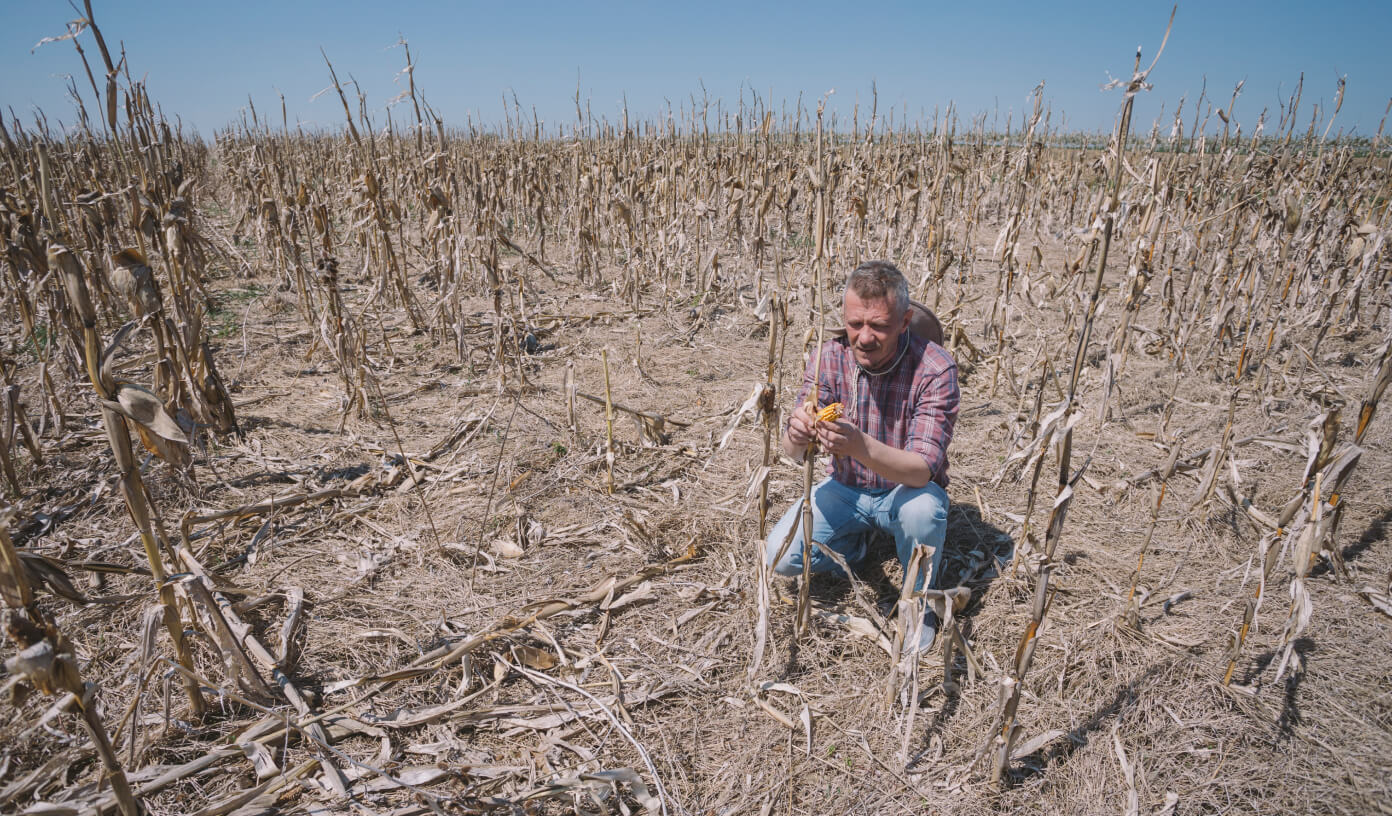 Photo by: marccophoto / iStock
Photo by: marccophoto / iStock
Climate anomalies threaten to become the norm — the world is doomed to water and food shortages
This year’s record temperatures and abnormal droughts are a consequence of ever-increasing global warming. Yes, weather anomalies have happened before, but they are becoming more frequent and intense as greenhouse gas emissions rise.
The UN estimates that the frequency of droughts on the planet has increased by 29% over the past 22 years, affecting an average of at least 55 million people annually. By 2030, 700 million people will be forced to move to more suitable areas as abnormal droughts become more frequent. By 2050, three quarters of the world’s population will be affected by droughts and 5.7 billion people will be living in water-deficient areas.
The only way to prevent this is to stop global warming at 1.5°C. To do so, global greenhouse gas emissions must fall by 43 per cent by 2030 and fall to zero by 2050. However, the current climate pledges made by the countries of the world are not enough: greenhouse gas emissions will not decrease in the next 10 years, but will increase — by 14%.
If heat waves and droughts like this year’s are commonplace, there will be far fewer countries in the world that can feed themselves, with Europe in serious danger of joining already famished Africa. And among the countries that will remain able to feed the poor regions, Russia occupies an important place.
This year, an abnormal heat wave started to hit our country at the end of June and is forecast to last until the end of August. In Central Russia — Moscow, Leningrad, Novgorod, Vologda and Pskov regions — temperatures reached 30-32 °C, exceeding the norm by only 5-6 °C. In the south — in Astrakhan, Volgograd, Rostov oblasts, Kalmykia, Krasnodar Krai and the Crimea — the air warms up to 37-40 °C. However, the effect of the abnormal heat in Russia is not as devastating as in many other regions of the world: our vital waterways do not run dry, hydroelectric plants and nuclear power plants do not shut down, and crops do not die of drought.
The world is on the brink of starvation right now. To avert disaster, sanctions against Russia will have to be withdrawn
Even before the abnormal summer, it was clear that the world was on the brink of global hunger. In May, UN Secretary General António Guterres stated that the COVID-19 pandemic doubled the number of people suffering from acute malnutrition in the world in two years. The figure reached a record 276 million people. It is expected to increase by another 47 million by 2022, since food and fertilizer imports from Russia, Ukraine and Belarus have stopped.
Currently, 63 states have imposed measures restricting exports of these goods from Russia and Belarus. And the West is preventing the resumption of full-fledged international trade.
Russia and Ukraine accounted for 30% of world exports of wheat, 20% of corn and 80% of sunflower seed products. At least 50 countries bought wheat from the two states. Russia was the largest fertiliser exporter, accounting for 15 per cent of the world market.
As a result of international restrictions, the U.N. Food and Agriculture Organization’s price index, which experts track the average cost of food, rose 12.6 percent back in March, reaching new all-time highs. Cereal prices jumped by a quarter and fertiliser prices doubled.
The UN Secretary General called the return of Ukrainian, Russian and Belarusian food products to the world market a key step towards overcoming global food shortages, regardless of current circumstances. If this does not happen, the consequences will not be limited to an increase of 47 million hungry people by the end of 2022 — the situation will deteriorate rapidly thereafter. According to Guterres, the Ukrainian crisis could push 1.7 billion people — more than a fifth of humanity — into the kind of poverty and hunger not seen in decades.
Author: Ivan Bolotov
Cover photo: Philippe Paternolli / iStock
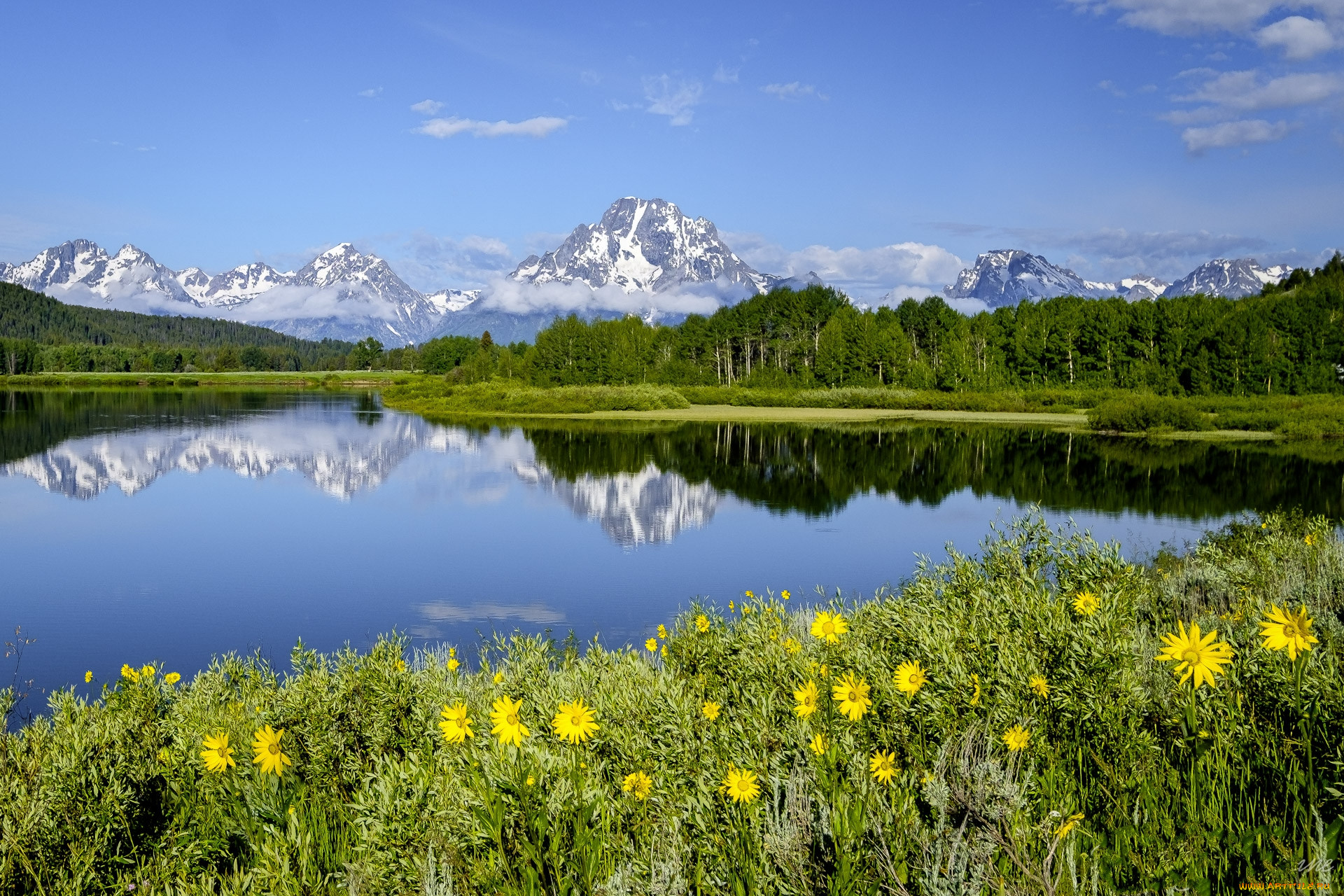


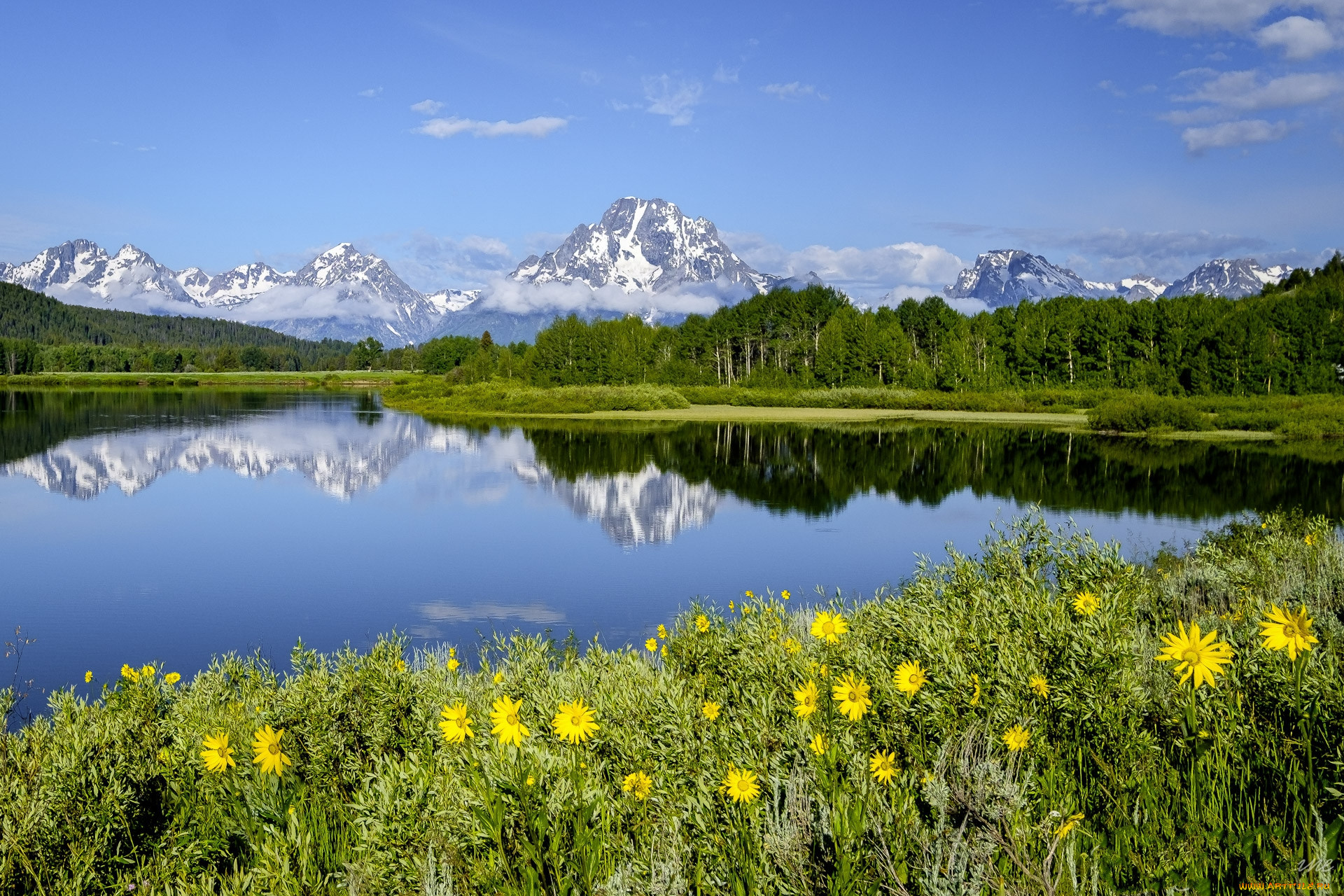
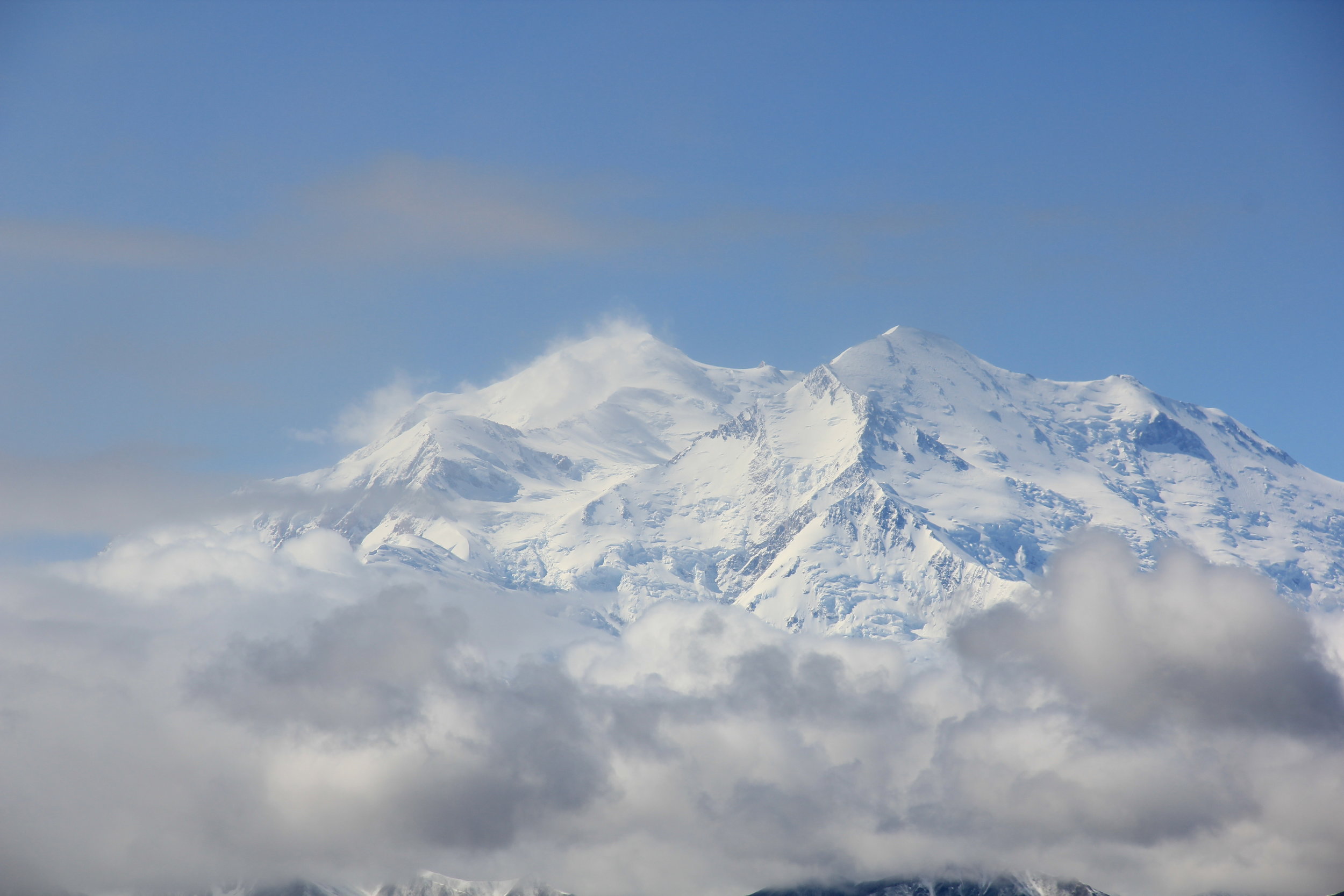



Comments